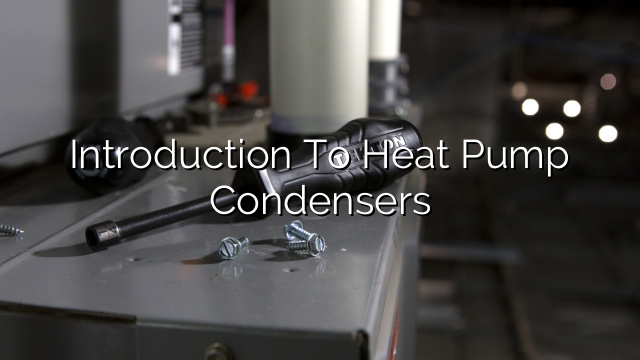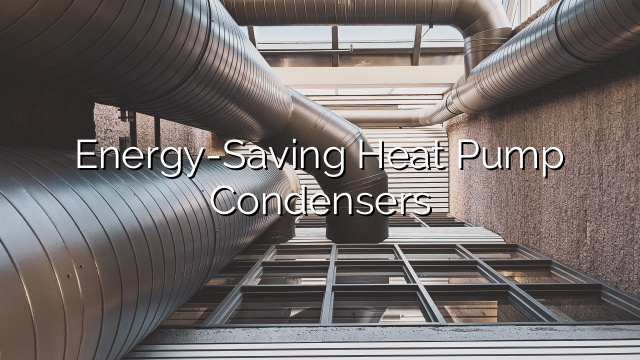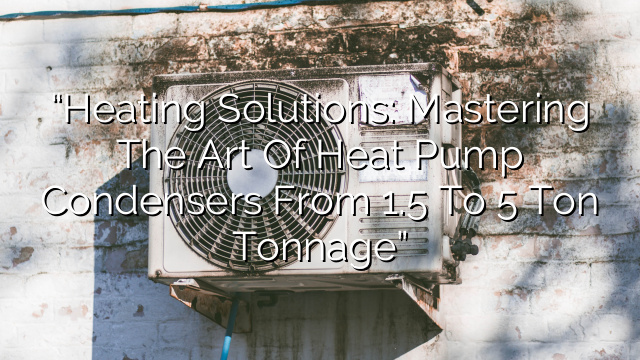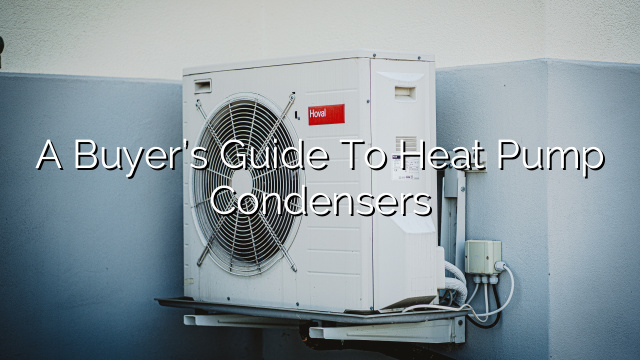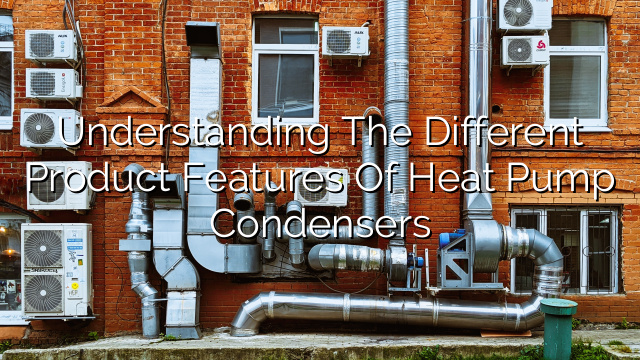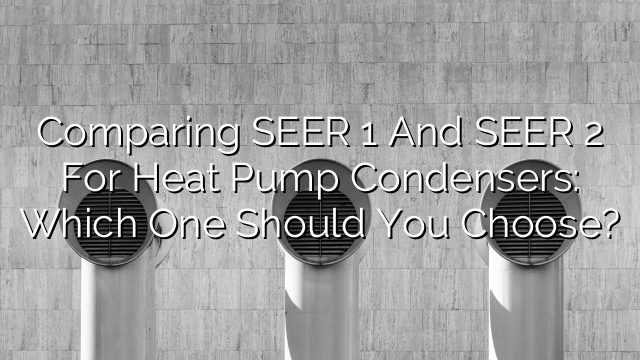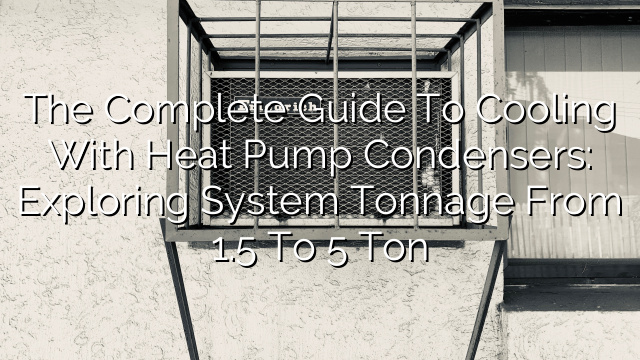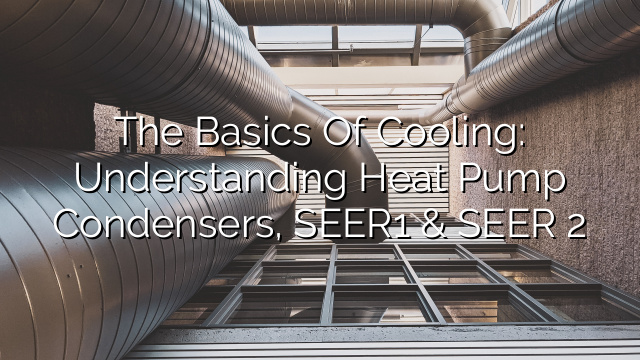What is a Heat Pump Condenser?
A heat pump condenser is an essential component of a heat pump system. It plays a crucial role in the transfer of heat from one area to another. In simple terms, a heat pump condenser acts as a heat exchanger, absorbing heat from the source and releasing it into the surrounding environment.
How Does a Heat Pump Condenser Work?
A heat pump condenser operates on the principle of heat transfer. It consists of a coil through which a refrigerant fluid flows. The refrigerant starts off as a low-pressure gas and is compressed by a compressor. As the refrigerant is compressed, it becomes a high-pressure gas and increases in temperature.
The hot refrigerant gas then enters the heat pump condenser, where it dissipates the heat to the surrounding air or water. The condenser coil acts as a heat exchanger, allowing the heat from the refrigerant to transfer to the external medium (air or water). As the heat is released, the refrigerant condenses back into a liquid state.
Once the refrigerant has condensed, it passes through an expansion valve, where it experiences a drop in pressure and temperature. This low-pressure liquid refrigerant then enters the evaporator coil, where it absorbs heat from the desired area (such as a room or a building). The process repeats, and the cycle continues.
Types of Heat Pump Condensers
There are various types of heat pump condensers available in the market. The choice of condenser depends on the specific application and requirements. Some common types of heat pump condensers include:
- Air-to-Air Condensers: This type of heat pump condenser transfers heat between the refrigerant and the surrounding air. It is commonly used in residential and commercial buildings for space heating and cooling purposes.
- Water-to-Air Condensers: Water-to-air condensers transfer heat between the refrigerant and a water source, such as a boiler or a geothermal loop. They are often used in hydronic heating systems and can also provide cooling through chilled water.
- Water-to-Water Condensers: Water-to-water condensers transfer heat between two water sources. They are used in applications where high-temperature hot water is required, such as in radiant floor heating systems or for domestic hot water production.
Benefits of Using a Heat Pump Condenser
Heat pump condensers offer several advantages over traditional heating and cooling systems. Some of the key benefits include:
- Energy Efficiency: Heat pump condensers are highly energy efficient, as they transfer heat rather than generate it. This can result in significant energy savings and reduced utility bills.
- Versatility: Heat pump condensers can both heat and cool a space, making them suitable for year-round use. They can also be used in combination with other heating and cooling systems for enhanced comfort.
- Environmental Friendliness: Heat pump condensers produce fewer greenhouse gas emissions compared to traditional heating and cooling systems. They use refrigerants that have low global warming potential (GWP), minimizing their impact on the environment.
- Quiet Operation: Heat pump condensers are designed to operate quietly, ensuring minimal disturbance for the occupants of a building.
- Long Lifespan: With proper maintenance, heat pump condensers can have a long lifespan, providing reliable heating and cooling for many years.
Installation and Maintenance
Installing a heat pump condenser requires professional expertise. It involves connecting the condenser to the heat pump system, ensuring proper refrigerant flow, and integrating it with the existing heating or cooling infrastructure.
Regular maintenance is crucial for the optimal performance and longevity of a heat pump condenser. This includes cleaning or replacing air filters, inspecting the refrigerant lines for leaks, and checking the overall functionality of the system. It’s recommended to schedule annual maintenance with a qualified HVAC technician.
Frequently Asked Questions (FAQ)
- Can a heat pump condenser be used for both heating and cooling? Yes, heat pump condensers are designed to provide both heating and cooling capabilities. They can absorb heat from the external environment to provide heating during colder months and release heat to cool the space during warmer months.
- What is the typical lifespan of a heat pump condenser? The lifespan of a heat pump condenser can vary depending on various factors, such as the quality of the unit, regular maintenance, and usage patterns. On average, a well-maintained heat pump condenser can last for 15-20 years or more.
- Can a heat pump condenser be used in extremely cold climates? While heat pump condensers are effective in moderate to cold climates, they may struggle to provide sufficient heating in extremely cold temperatures. In such cases, a backup heating source, such as a furnace, may be necessary to ensure consistent heating.
- Do heat pump condensers require a lot of maintenance? Heat pump condensers require regular maintenance to ensure optimal performance. This includes cleaning or replacing air filters, inspecting refrigerant lines, and checking overall system functionality. It’s recommended to schedule annual maintenance with a qualified HVAC technician.
- Can a heat pump condenser save on energy costs? Yes, heat pump condensers are known for their energy efficiency and can result in significant energy savings compared to traditional heating and cooling systems. They transfer heat rather than generate it, making them highly efficient.
Conclusion
Heat pump condensers are crucial components of heat pump systems. They work by transferring heat from one area to another, providing both heating and cooling capabilities. There are different types of heat pump condensers available, depending on the specific application. Heat pump condensers offer several benefits, including energy efficiency, versatility, environmental friendliness, quiet operation, and a long lifespan. Proper installation by a professional and regular maintenance are essential for optimal performance and durability. If you have any further questions about heat pump condensers, please refer to our FAQ section or consult with a qualified HVAC technician.

